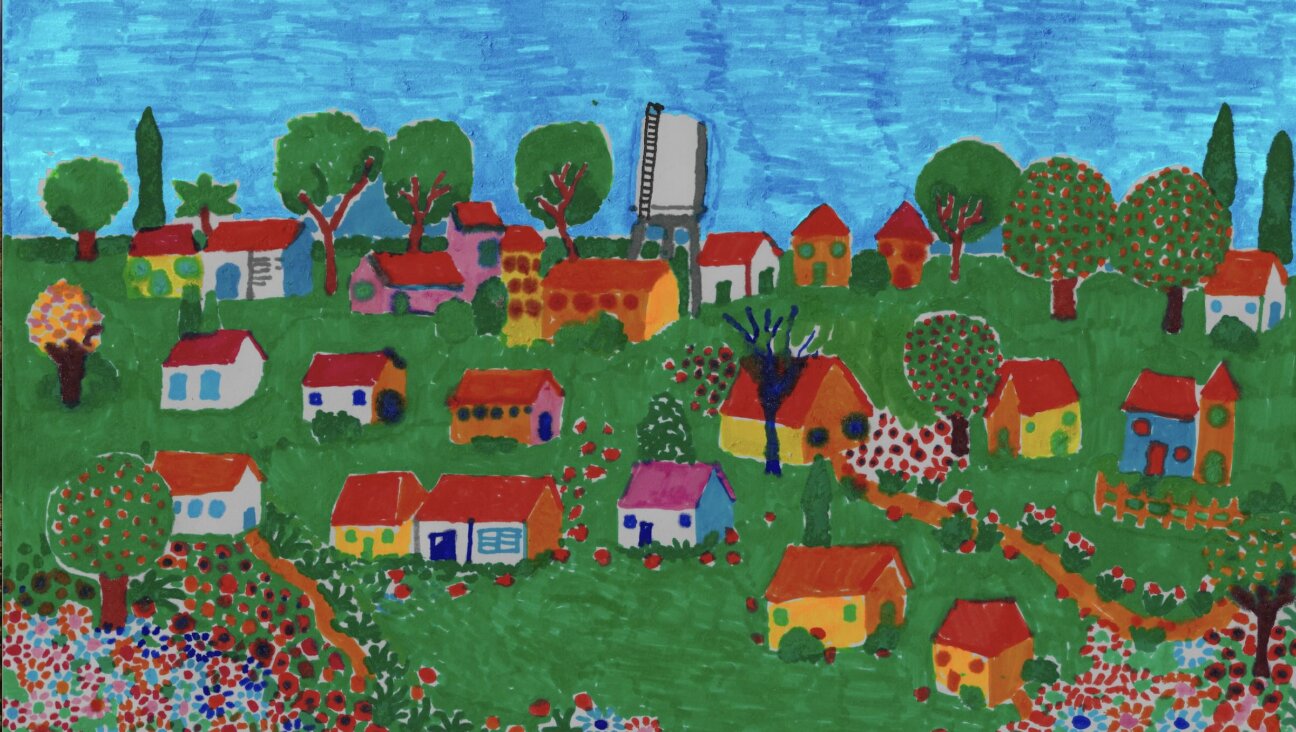Expanding Freedom in Today’s World
Nourish the Hungry
By Ruth Messinger
Whether we’re eating bread or matzo, legumes or leafy greens, our relationship to food is something more than 1 billion people around the world can’t imagine. Why? Because they are chronically hungry, enslaved to a global economy that prevents them from having the food they need to survive.
The Universal Declaration of Human Rights calls hunger a crime against humanity, and the International Covenant on Economic, Social and Cultural Rights declares that access to food is a right, not a privilege. Throughout history, people subsisted on foods grown in nearby fields. But today, thanks to free trade agreements, wealthy multinational corporations have decimated local agriculture and distorted local markets. Consequently, farmers in the developing world can’t build sustainable livelihoods or feed their families.
Food security and human nourishment are the principal building blocks for a civil society and a freer world. Jewish tradition teaches that “without sustenance, there is no Torah”— without food, it is impossible to think, impossible to thrive. So what can we do? We must address global hunger from the ground up. We must advocate for policies that put food production back into the hands of local farmers so that even the world’s poorest people can move out of poverty.
Ruth Messinger is president of American Jewish World Service.
Hate Evil, Wherever It Is
By Shmuley Boteach
The best way to expand freedom in the world is to hate and fight evil. Unlike religions that exclusively extol the virtues of love, Judaism commands us to detest and oppose the wicked. “Let those who love the Lord hate evil,” the Psalmist declares (Psalm 97). And Ecclesiastes famously proclaims that there is “a time to love and a time to hate.”
But our lack of resolve in detesting and resisting evil regimes is what ultimately allowed seven genocides in the 20th century alone, and what permits despots like Hugo Chavez to dismantle functioning democracies and tyrants such as Bashar al-Assad to massacre protesters. In Rwanda, 330 people died on average every hour for three months while the United States refused to fire even a single missile that would have taken out the radio antenna broadcasting the call to genocide. Finally, with Saddam Hussein and Muammar Gadhafi, America summoned the resolve to punish a dictator for slaughtering his people.
French warships at Yorktown helped America become free. We have an obligation to pass on the favor.
Rabbi Shmuley Boteach is the author, most recently, of “Renewal: A Guide to the Values-Filled Life” (Basic Books, 2010).
Let All Come and Learn
By David Wolpe
Freedom is not only the absence of restraint; it is the presence of possibility. Once the Israelites escaped the Egyptians, they were made free by learning how to create a society. Education increases freedom, as does community. A guide and a path of life grants freedom because it enables one to flourish. Anything that stunts possibility enslaves us.
The greatest act of liberation in the world today is the education of girls. All over the globe there are girls whose minds are uncultivated. As a result their potential — this invaluable, inexhaustible resource — is denied to their societies and to the larger world. They are fettered by enforced ignorance.
The Exodus story tells us how women such as Moses’ mother Yocheved, Pharaoh’s daughter, the midwives and Miriam, acting vigorously and independently at crucial moments, helped saved the Jewish people. At this hinge of our history, we relied on that half of the population that is too often subjugated by the despicable assumption that they cannot contribute as men do.
This Passover let all who are hungry come and eat and all who are curious come and learn.
Rabbi David Wolpe is rabbi of Sinai Temple in Los Angeles.
Smash the Idols We Worship
By Douglas Rushkoff
For most of us, the release from slavery described in the story of Pesach is metaphorical. We are not enslaved physically; we are rather imprisoned mentally, emotionally and spiritually. Mitzrayim, the “narrow place,” is a narrow state of mind from which we are released the moment we are willing to smash our idols.
Those 10 plagues had only as much to do with terrifying Pharaoh as they did with releasing us from the gods the Hebrews likely also worshipped in their 400-year sojourn in Egypt. Blood desecrated the god of the Nile, locusts desecrated the god of corn, darkness desecrated the god of the sun and so on. Deliverance meant abandoning those false gods.
But in today’s highly interdependent world, the very ideas that might be enslaving us metaphorically have very real repercussions for others. It is our devotion to false idols that imprisons the underclasses we never meet. Our beliefs about global markets indebt developing nations; our belief in stability over democracy promotes dictatorships; our belief in the right to bargain-priced consumer goods perpetuates oppression in China.
Expanding freedom for today’s world means breaking free of the false notions imprisoning our minds and enslaving others.
Douglas Rushkoff is the author of “Program or be Programmed: Ten Commands for a Digital Age” (OR Books, 2010).
A message from our Publisher & CEO Rachel Fishman Feddersen

I hope you appreciated this article. Before you go, I’d like to ask you to please support the Forward’s award-winning, nonprofit journalism during this critical time.
We’ve set a goal to raise $260,000 by December 31. That’s an ambitious goal, but one that will give us the resources we need to invest in the high quality news, opinion, analysis and cultural coverage that isn’t available anywhere else.
If you feel inspired to make an impact, now is the time to give something back. Join us as a member at your most generous level.
— Rachel Fishman Feddersen, Publisher and CEO























